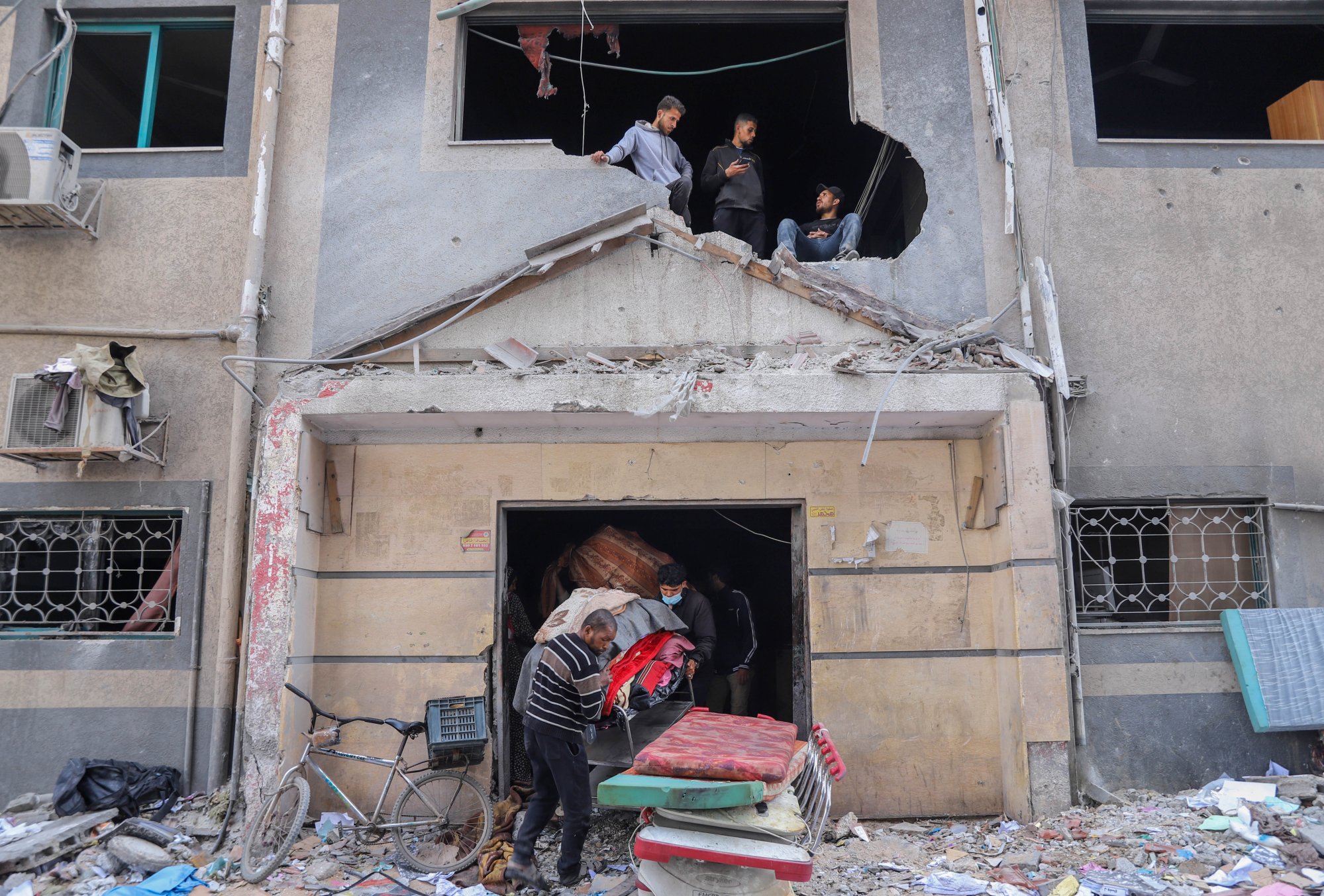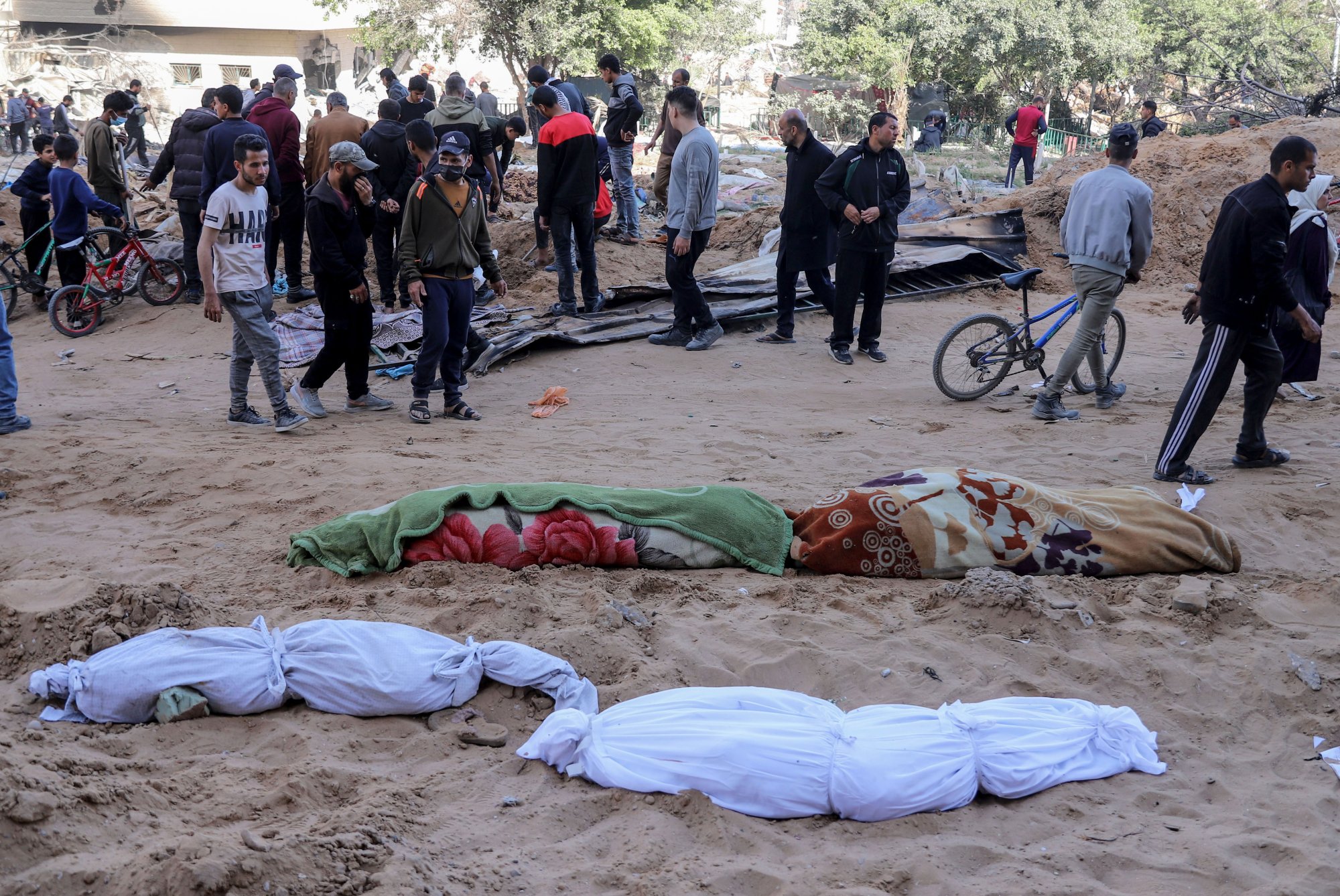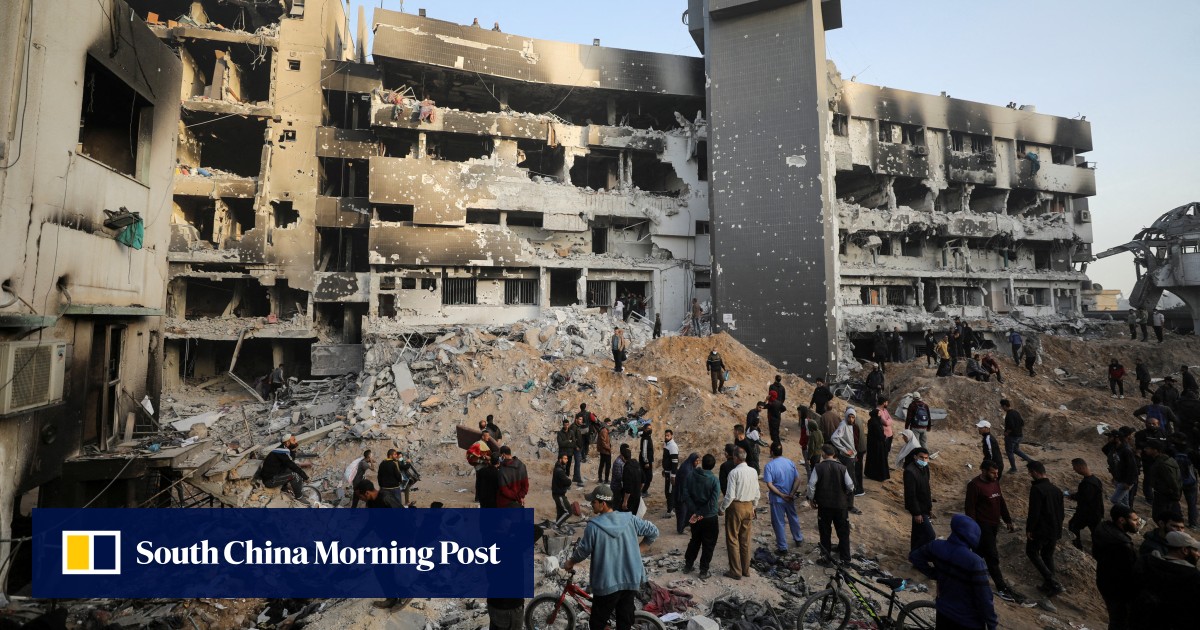The White House will demand more information from Israel after “deeply concerning” reports on Monday of bodies found strewn at Gaza’s largest hospital complex as Israeli forces pulled out after an intensive military operation there.
“It is deeply concerning if it’s true, we’re going to be reaching out to the Israeli government to get more information,” White House Press Secretary Karine Jean-Pierre told reporters in Washington.
She spoke after the health ministry in Hamas-run Gaza reported “dozens of bodies, some of them decomposed” had been found around the hospital, while doctors and civilians at the damaged complex told Agence France-Presse at least 20 bodies had been found, some of which appeared to have been driven over by military vehicles.

Over the past two weeks, the Israeli army carried out what it labelled “precise operational activity” at the al-Shifa complex, before declaring on Monday that the forces had withdrawn.
Israel said it had battled Palestinian militants hiding inside Gaza City’s al-Shifa hospital, killing at least 200 of them and recovering large stockpiles of weapons, explosives and cash.
A spokesman for Gaza’s civil defence agency said on Monday that Israeli forces killed about 300 people in and around the hospital over the two-week operation.
The health ministry in Hamas-ruled Gaza said that, after heavy Israeli air strikes and tank fire, “the scale of the destruction inside the complex and the buildings around it is very large”.
Israeli army withdraws from Gaza’s main hospital after 2-week operation
Israeli army withdraws from Gaza’s main hospital after 2-week operation
“Dozens of bodies, some of them decomposed, have been recovered from in and around the al-Shifa medical complex,” it said, adding that the hospital was now “completely out of service”.
Several doctors and civilians at the damaged complex told Agence France-Presse that at least 20 bodies had been found, some of which appeared to have been driven over by military vehicles.
Several were found close to the west entrance to the complex, which the Israeli army used during its departure from the hospital grounds on Monday.
“Bodies … The tanks went over them. Destruction. Children. Innocents. Unarmed civilians. They [soldiers] went over them,” one witness said, asking not to be named.
An Agence France-Presse correspondent saw one badly decomposed body bearing tyre marks, although it was not known when it was driven over.
The Israeli military did not immediately respond to Agence France-Presse’s request for comment.
The Hamas government press office said the army had blown up more than 20 houses within 24 hours in the main southern city of Khan Younis, where battles have also raged around the Nasser and al-Amal hospitals.
Israelis stage largest protest against Netanyahu government since war began
Israelis stage largest protest against Netanyahu government since war began
Israeli Prime Minister Benjamin Netanyahu was maintaining “his daily routine from hospital”, his office said in a statement, following a hernia operation on Sunday.
He will be discharged on Tuesday afternoon, it added.
During their attack on Israel, Palestinian militants also seized around 250 hostages. Israel believes about 130 remain in Gaza, including 34 who are presumed dead.
Netanyahu is under rising pressure from the hostages’ families and supporters, as well as anti-government protesters, whose nightly street rallies have gathered pace and drawn thousands onto the streets.
The right-wing premier has also been at odds with Israel’s top ally the United States, which has objected to his plans to invade Rafah in southern Gaza because the city is crowded with about 1.5 million people.

Netanyahu earlier cancelled an Israeli government delegation’s visit to Washington to discuss the Rafah operation against Hamas militants, but a meeting has been set for Monday via video conference, an Israeli source told Agence France-Presse.
Washington confirmed the meeting would take place.
The war in Gaza has repeatedly raised fears of a wider regional conflagration, with repeated violence linked to the conflict in Iraq, Lebanon, Syria and Yemen.
Those fears intensified on Monday with the strikes in Damascus.

